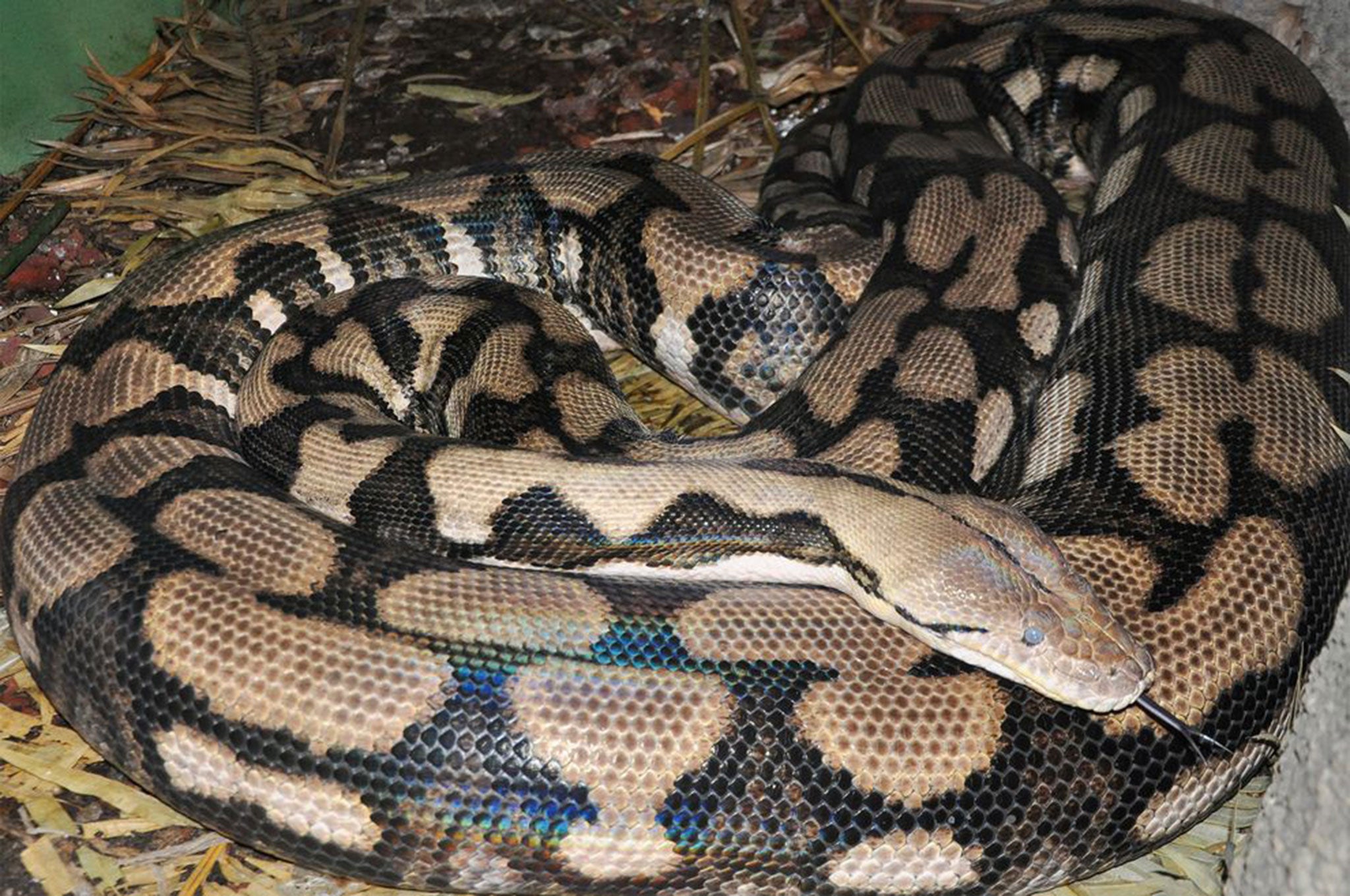World’s largest snake species has 'virgin birth'
A python named Thelma hatched six offspring - without contact with a male

Your support helps us to tell the story
From reproductive rights to climate change to Big Tech, The Independent is on the ground when the story is developing. Whether it's investigating the financials of Elon Musk's pro-Trump PAC or producing our latest documentary, 'The A Word', which shines a light on the American women fighting for reproductive rights, we know how important it is to parse out the facts from the messaging.
At such a critical moment in US history, we need reporters on the ground. Your donation allows us to keep sending journalists to speak to both sides of the story.
The Independent is trusted by Americans across the entire political spectrum. And unlike many other quality news outlets, we choose not to lock Americans out of our reporting and analysis with paywalls. We believe quality journalism should be available to everyone, paid for by those who can afford it.
Your support makes all the difference.A 20-foot python from a zoo in America has given birth without the help of a mate.
Thelma, an 11-year-old reticulated python - the longest species of snake in the world - laid 61 eggs in the summer of 2012. This is despite having had no contact with a male in her four years at Louisville Zoo in Kentucky, USA.
After six months of extensive tests on the shed skins of the mother and her daughters, a study published in July this year in the Biological Journal of the Linnean Society confirmed that Thelma was the sole parent, in the first recorded example of virgin birth in the species.
Bill McMahan, Curator of Ectotherms at Louisville Zoo, told National Geographic: “We didn’t know what we were seeing. We had attributed it to stored sperm. I guess sometimes truth is stranger than fiction."
The research revealed that offspring were in fact the result of terminal fusion automixis, a process whereby cells known as polar bodies fuse with the egg to trigger cell division, effectively acting as sperm.
McMahan added: “It is not uncommon for a snake to lay infertile eggs, so the staff was surprised when the eggs appeared to be full and healthy instead of shrunken and discoloured shells.
“It is a very exciting thing to be able to witness something like that first hand, especially something that has never been documented before in this species.”
Virgin births have been observed in other species of reptiles, including other pythons, as well as birds and sharks.
The process of fatherless reproduction in animals that normally require two parents is called parthenogenesis, although it is still a mystery to scientists, who are unable to explain the phenomenon.
Join our commenting forum
Join thought-provoking conversations, follow other Independent readers and see their replies
Comments